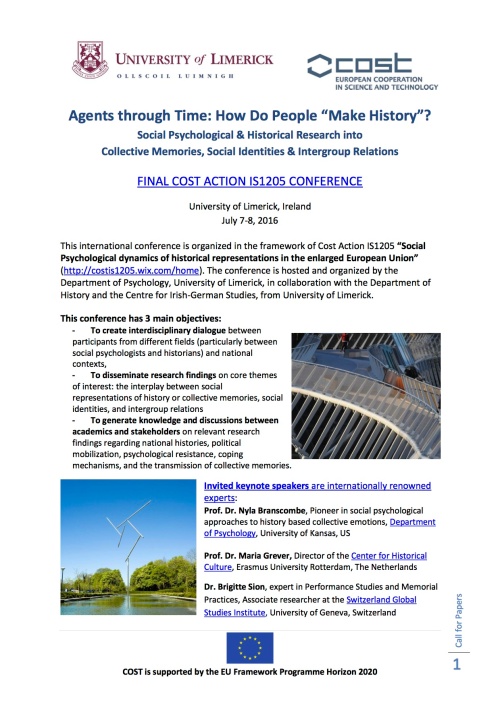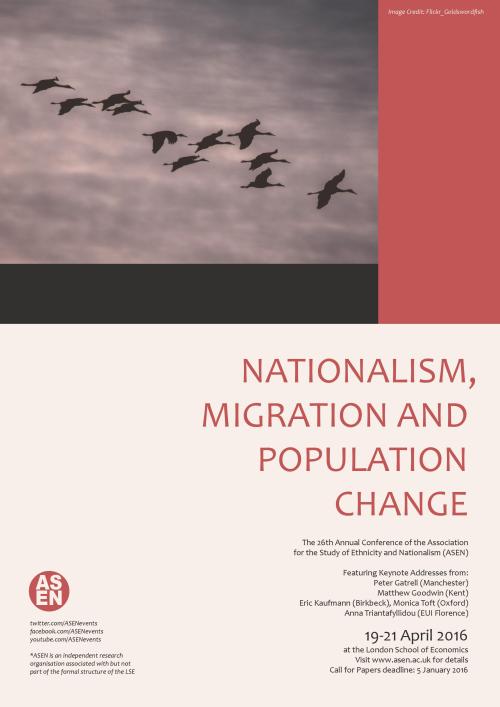Protagonists of national movements. A preliminary workshop Prague, Charles University, Institute of Political Science
8 September 2016
Convenor: Ludger Mees (University of the Basque Country)
The importance of the concepts of ‘heroes’ and ‘leaders’ for the development of national movements is reflected by the vast scientific attention paid to them, unwittingly pushing other players to the background. But at least as crucial for the success and failure of national movements are the less well-known and less celebrated advocates of the cause or ‘protagonists’, engaged in the dissemination and transfer of cultural and political ideas, acting as go-between ‘top-down’ and ‘bottom-up’, and actively turning them into reality. There is a clear necessity of defining and analysing this important aspect of national movements and in the process providing data to put related nationalism theories to the empirical test.
Following a conference (in Vilnius from 17 to 18 September 2014) on the concept of heroes, this workshop acts as a preliminary meeting to a subsequent conference on protagonists. The aim is to delineate this analytical category and test it through prosopographical and case studies. The workshop will assist with narrowing down the subject for the conference: for instance which area of activity (organisational, cultural, social, political…) or which ‘Hrochean stage’ (if not all three: phase A: cultural protonationalism; phase B: political mobilisation of an elite; phase C: mass movement) it should focus on or in what way theory formation on the protagonists’ contribution to the movement could be enhanced.
For the workshop we therefore especially welcome conceptual and theoretical contributions as well as concept-related prosopographical studies of both case biographies and group profiles (regional, professional etc.).
Opening the analytical scope to the limitless pool of non-leaders necessitates a strong typology. Instead of prioritising and excluding certain social categories in advance, we want to open a debate on the research agenda for the conference. The concept itself of ‘protagonist’ will have to be examined taking into account the related terminology (hidden key-figure, identity entrepreneur, claim-maker, activist, neglected secondary figure, contested hero…), in perspective of the range of existing social categories and the role of human agency in national and regional identification. Topics could for instance be social groups that escaped our attention and why it is important to include them in the study of national and regional movements, touch upon the role for female figures or the relation between prestige and power, or look at their impact and ‘afterlife’ in national memory (the list is of course not exhaustive). In a broader sense, it should also be discussed to what extent certain non-personal (formal and informal) organisations (such as a chorus for the performance of national folk music, hiking, dancing or theatre groups etc.) should be considered as ‘protagonists’, as subtle promotors of the cultural milieu in which the national movement would emerge and spread.
The workshop is organised by NISE and University of Antwerp (UA), with the help of Centre de Recherche Bretonne et Celtique (CRBC), while the Institute of Political Studies from Charles University acts as host.
NISE (National movements and Intermediary Structures in Europe) is an international platform that connects researchers and institutes working on national and regional movements in Europe. In order to facilitate collaborative research projects, NISE has created the online research environment DIANE (Digital Infrastructure for the Analysis of National movements in Europe) that allows data collection and analysis.
As the format of the workshop is designed to encourage questions and debate, each presentation on the day is limited to maximum 15 minutes; in return the participants have to provide a first draft of their paper prior to the workshop. Participants are also expected to enter basic data on the persons and networks featured in their paper in DIANE.
All contributions will be eligible for publication in NISE’s peer-reviewed journal Studies on National Movements-SNM.
Free accommodation is made available in Prague for all participants for two nights as well as free meals provided. Participants are however expected to pay for their own travel costs (there is a limited grant system assisting with travel costs for those not receiving funding by their institute).
Please send your paper abstract (not exceeding 300 words) and brief CV (one paragraph identifying your name, institutional affiliation, areas of interests, and contact info, and a list of your representative publications) to Laurent Le Gall <legall- vidaling@wanadoo.fr>, by May 1, 2016.
The number of participants for this one-day workshop is limited, and the papers will be selected through double-blind peer review.
Decisions on acceptance will be announced from June1, 2016.










You must be logged in to post a comment.